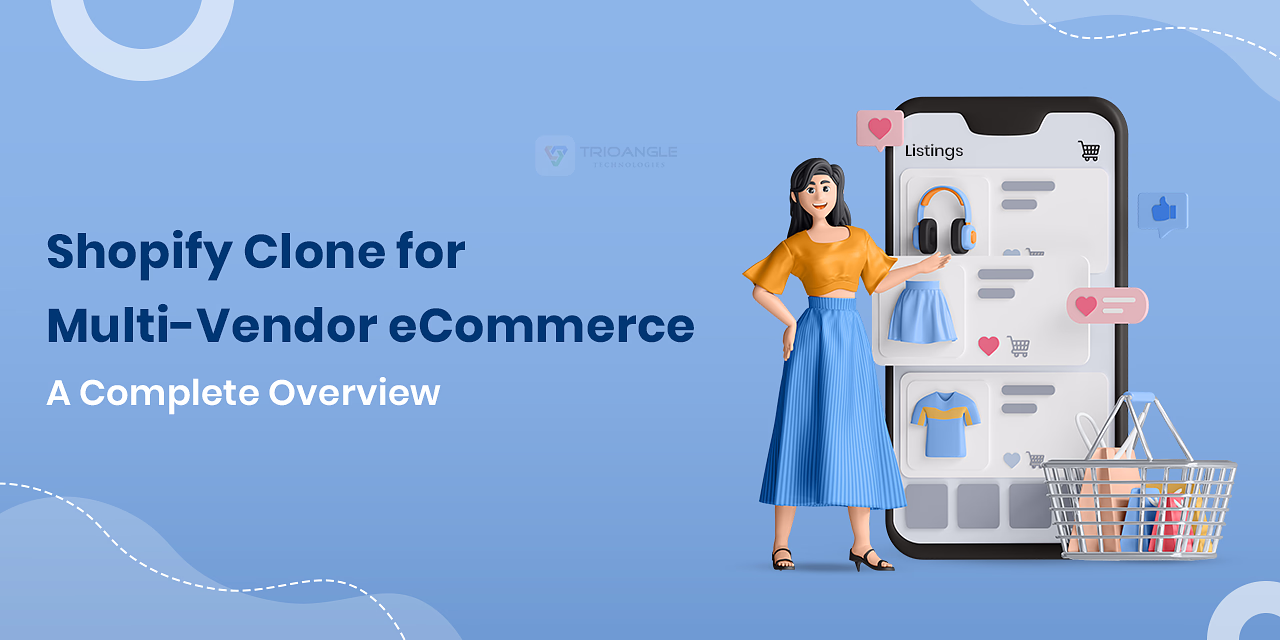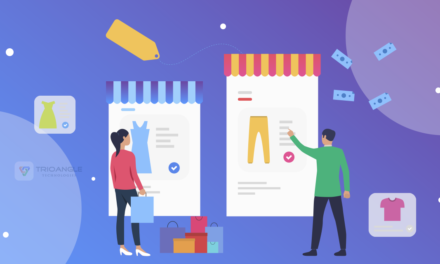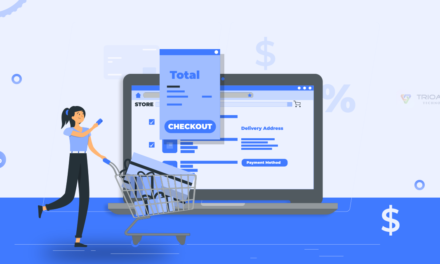The multi-vendor e-commerce business is rapidly evolving, offering numerous opportunities for budding entrepreneurs to enter a crowded market. Are you looking to launch your online multi-vendor app? A Shopify Clone can help you build a feature-rich ecommerce app where multiple vendors sell products under one digital platform.
No need to feel overwhelmed. This blog covers everything from standard features to smart revenue models. Curious to know what makes it truly powerful?
Let’s dive into the complete overview!
What is Shopify Clone and Why Does It Matter?
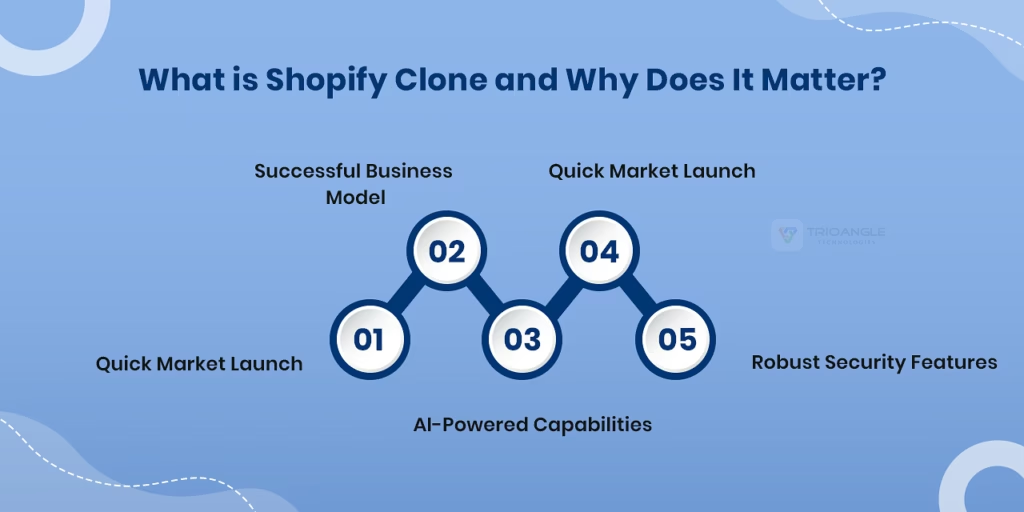
A Shopify clone is a scalable multi-vendor clone script that replicates the basic functionalities of Shopify. This is generating over $7 billion in revenue in 2024, and over 4 million merchants are using the platform, the demand for similar solutions is massive. Here’ why it matters:
Quick Market Launch
Compared to traditional development, a Shopify clone allows for a quick launch without a lengthy development period, which helps you get market attention and start generating revenue faster.
Successful Business Model
The Shopify Clone follows a successful model that provides smooth multi-vendor operations for vendor growth, ensuring long-term platform sustainability and user satisfaction.
AI-Powered Capabilities
Easily adopts AI for product recommendations, dynamic pricing, customer insights, and automated support to boost user engagement and sales.
Seamless Third-party Integration
The Shopify clone script supports flexible integration of payment gateways, shipping partners, CRMs, and marketing tools to enhance business growth and efficiency.
Robust Security Features
Equipped with built-in security features like data encryption, two-factor authentication, secure payments, and admin controls to protect customer and vendor data.
With these compelling reasons, Shopify Clone stands out as a multi-vendor eCommerce solution.
Continue reading to explore its role in a competitive market.
Essential Characteristics In The Shopify Clone Script
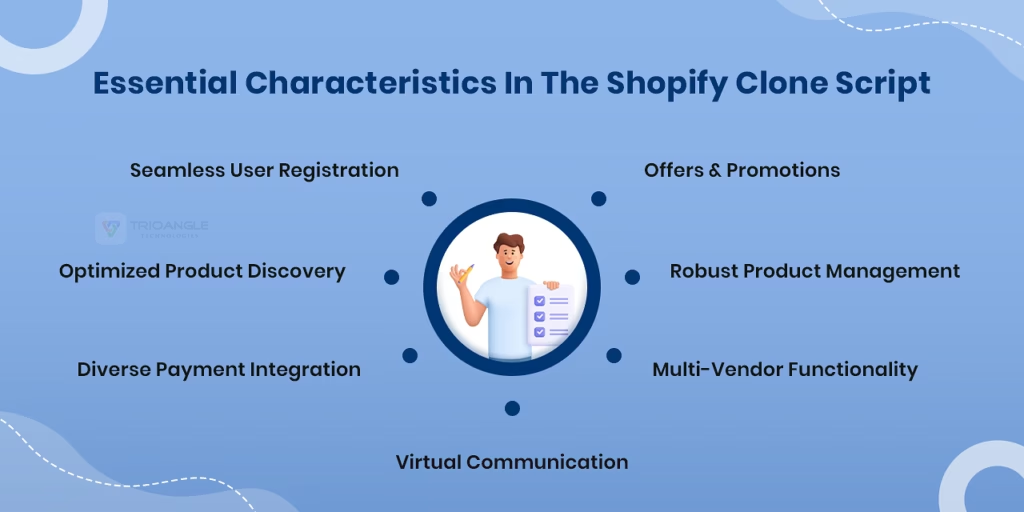
This robust B2B ecommerce script is packed with powerful features for scalable online marketplace solutions. Let’s check it out.
Simple User Registration
Shopify Clone app allows quick sign-up using emails, phone numbers, or social logins such as Google or Facebook.
A simple onboarding process with fewer stages helps increase conversion. Also, incorporating OTP/email verification, password recovery, and account management improves usability.
Optimized Product Discovery
Shopify Clone enhances the user experience by allowing customers to rapidly find products using filters such as category, brand, price, size, rating, and tags.
A smart search bar with autocomplete, spelling correction, and suggested results enables customers to find relevant items in fewer steps.
Secure Payment Integration
The Shopify Clone script combines several payment methods, including Stripe, PayPal, and cash on delivery.
Also, integrating encryption, fraud detection tools, and tokenization helps you ensure fast and secure transactions. This eCommerce platform handles automated vendor payouts, refunds, and invoice generation with multi-currency support.
Virtual Communication
Shopify Clone script provides in-app chat or messaging functionalities for buyers and sellers to increase transparency. Buyers can ask questions about items before purchasing.
It also provides email and push notifications for order updates, shipping status, promotions, and support messages.
Multi-Vendor Functionality
Shopify Clone allows multiple merchants to register, manage their stores, and sell items on the same platform.
The admin can set commission rates, monitor vendor activity, and provide a consistent marketplace experience. It enables vendor dashboards, product uploads, order monitoring, and performance metrics.
Robust Product Management
Enables merchants to add, update, and categorize products effortlessly. It supports bulk uploads, inventory tracking, SKU management, and product variations such as size and colour.
Admin can regulate listings to ensure quality control and give users a more organized shopping experience.
Offers & Promotions
Allow admins and vendors to create discounts, promotional coupons, flash deals, and package offers. These promotions might be limited to certain products or apply to the entire business.
Scheduled marketing, use limitations, and automatic price updates drive more customer conversion and repeat purchases.
Also Read: How to Start A Multi-Vendor Ecommerce Business?
Shopify Clone: A Step-by-Step Development Process Explained
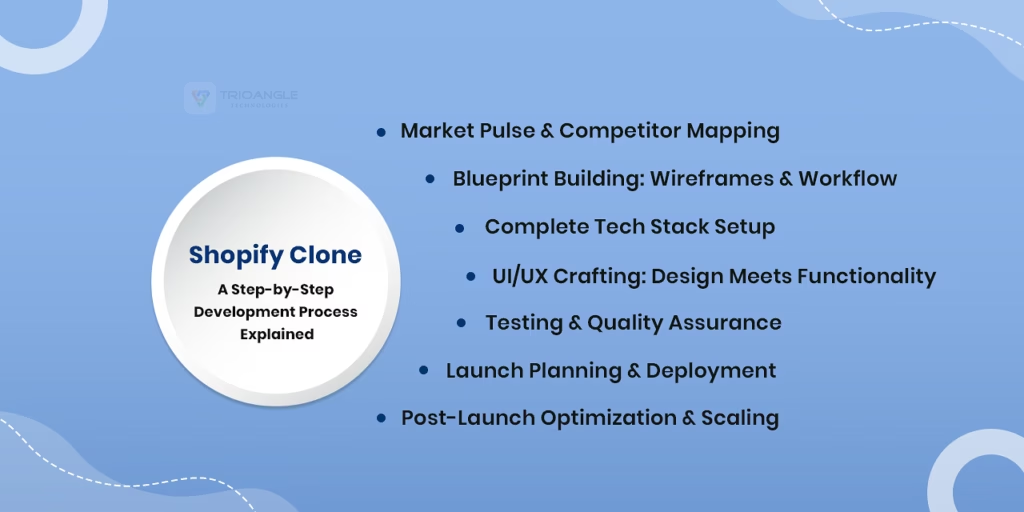
Jump into this step-by-step Shopify clone app development process to help you launch faster. Let’s read deeply!
Market Pulse & Competitor Mapping
A successful Shopify Clone app development begins with extensive and clear market research. Examine global ecommerce trends, user behaviour, and demand from both vendors and buyers. Identify the key features of top platforms and where they fall short.
It enables you to create an app that not only meets but surpasses expectations through innovation. Study pricing models, UI strengths, and feature gaps in competitor apps.
This phase creates your vision, allowing you to position the platform distinctively while targeting underserved niches or new monetization channels in the multi-vendor market.
Blueprint Building: Wireframes & Workflow
The next step in developing a Shopify Clone is to create detailed wireframes and workflows. This blueprint provides a visual representation of the app’s structure, displaying user interactions, screen layouts, and the path from product discovery to checkout.
Clear workflows help align development and design teams while reducing misunderstandings. By mapping every screen and feature early, you ensure smoother app execution and fewer mid-development changes.
This establishes the foundation for a scalable, user-friendly purchasing experience modelled by popular e-commerce systems.
Complete Tech Stack Setup
Choosing the right technology stack is crucial for creating a scalable and secure Shopify clone. A dynamic, responsive interface is often achieved on the frontend using React or Vue.js.
For the backend, Node.js or Laravel provides quick performance and comprehensive APIs. It works well with databases such as MongoDB or MySQL, and it can be deployed on AWS or Google Cloud.
In your Shopify Clone script, integrate third-party APIs for payment gateways, SMS/email alerts, and analytics tools. A strong technology stack does more than merely run the app; it also assures performance, security, and seamless scaling across devices.
UI/UX Crafting: Design Meets Functionality
User interface (UI) and user experience (UX) design determine how appealing and intuitive your Shopify clone seems to users. This phase focuses on combining aesthetic appeal with practical functionality.
Designers must prioritize mobile-first design, as most people purchase on their devices. Clean layouts, responsive elements, and brand-friendly colours provide visual consistency. A fast navigation, optimized load times, and unambiguous calls-to-action enhance usability.
Every design decision, from product cards to cart icons, must result in a compelling and conversion-driven shopping experience that delights consumers at every stage.
Testing & Quality Assurance
Thorough QA testing ensures the app functions smoothly across all devices and browsers. Check the Shopify Clone script for performance issues, broken links, payment failures, and security flaws.
Before deployment, perform both manual and automated testing to confirm every user activity, from adding a product to completing an order. A bug-free program increases confidence between consumers and manufacturers.
Launch Planning & Deployment
Prepare your Shopify Clone for launch by configuring hosting, cloud storage, and CDN integration to ensure quick loading. Submit the app to the Google/Play store or host it online with a responsive web version.
A soft launch with a few vendors can help validate real-time performance. Once everything is stable, officially launch your app with a robust promotional campaign.
Post-Launch Optimization & Scaling
After launching your app, employ analytics tools to track how target users engage with it. Based on feedback, release updates, address errors, and improve the user experience.
The Shopify Clone script should allow for easy scaling as more suppliers and customers join. Add marketing plugins, loyalty programs, and SEO tools to improve your ecommerce platform’s visibility and long-term growth.
Hope these development steps give you clear insight into building a user-friendly and effective multi-vendor app.
Potential Revenue Sources Of Shopify Clone App
Let’s explore the following potential income streams of the Shopify Clone app to drive consistent revenue growth. Here,
Commission Model
Charge a fixed or percentage-based commission for each product sold through your platform. This model ensures that you benefit directly from merchant success. You can apply multiple commission rates to different product categories or seller levels, providing flexibility while rewarding high-performing merchants.
Affiliate Marketing
Promote third-party products or services within your app and earn commissions from purchases made through affiliate links
Create an affiliate program in which influencers, bloggers, or partners can earn by recommending new merchants to your site. This boosts your user base with minimal upfront investment.
Subscription Cost
Charge merchants a recurring fee to access your app. Provide numerous pricing tiers with different feature sets, such as storage limits, staff accounts, and analytics. Monthly or annual subscriptions provide stable, predictable income while catering to businesses of all sizes.
Ads & Featured Listings
Merchants can promote their stores or products through sponsored placements on the platform’s homepage, search results, or category pages.
Implement bidding or fixed ad strategies to increase vendors’ exposure, generate high-margin advertising income, and help you build a profitable eCommerce app.
Transaction Fees
Get a small commission for each sale made through your Shopify Clone. This aligns platform earnings with store success and ensures continuous revenue. The commission percentage can vary depending on the seller’s membership plan and overall sales volume.
Get Your Finite Solution Today!
In today’s fast-paced ecommerce world, building a multi-vendor app requires the right strategy and execution.
We assure that this blog has given you concise information on Shopify Clone launch benefits, standard features, development steps, and multiple revenue models.
Joining with an expert development team can turn your business vision into a thriving reality.
Are You Ready to Build a Multi-vendor E-commerce App Like Shopify?

